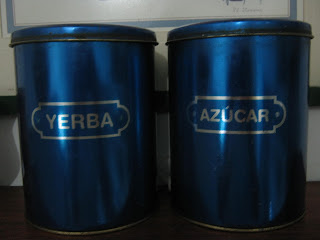The Art of Drinking Mate
At 4pm, on a summer afternoon in Argentina, it can be accurately assumed that the majority of people, young and old alike will be drinking a mate in good company. It is a time to be shared with family, friends, colleagues and associates.
The actual drinking of mate consists of three parts: the mate (a distinctive cup traditionally used), bombilla (essentially a metal straw with a small filter at the bottom), and the yierba mate (the plant that is processed into tea sized pieces). The mate was traditionally made out of gourd, which had to be cured with used leaves before it could be used. Today, however, mates can be found in an array shapes, forms and sizes. In the provinces of the Pampa grassland where calden trees grow well, mates are commonly made out of calden wood. In major cities, like Buenos Aires, shops will carry mates made out of glass, plastic, metal, silicon and wood. The bombilla, though it can be found in slightly varying forms, generally maintains one style, metal with a rounded bottom piece.
To prepare a mate, people put a bombilla in the mate cup and fill the cup three-quarters full of leaves. Water is put to boil and, for ease of serving, many people put the hot water in a thermos. When everyone is sitting around, the mate is filled with water and passed from person to person, with one person generally refilling it with more hot water at each turn. Only one mate is used and everyone shares the exact same straw. When you no longer want to drink, you simply say, ‘Gracias.’ and eventually everyone finishes.
There are three types of mate to drink: amargo, dulce (with sugar), and terere (ice cubes are put in the mate with the yierba and a cold watery juice is poured instead of hot water). Though all of them have pleasant, wonderful tastes and can be enjoyed at any time by oneself, the true pleasure of sharing a delicious mate with good people has no comparison.



